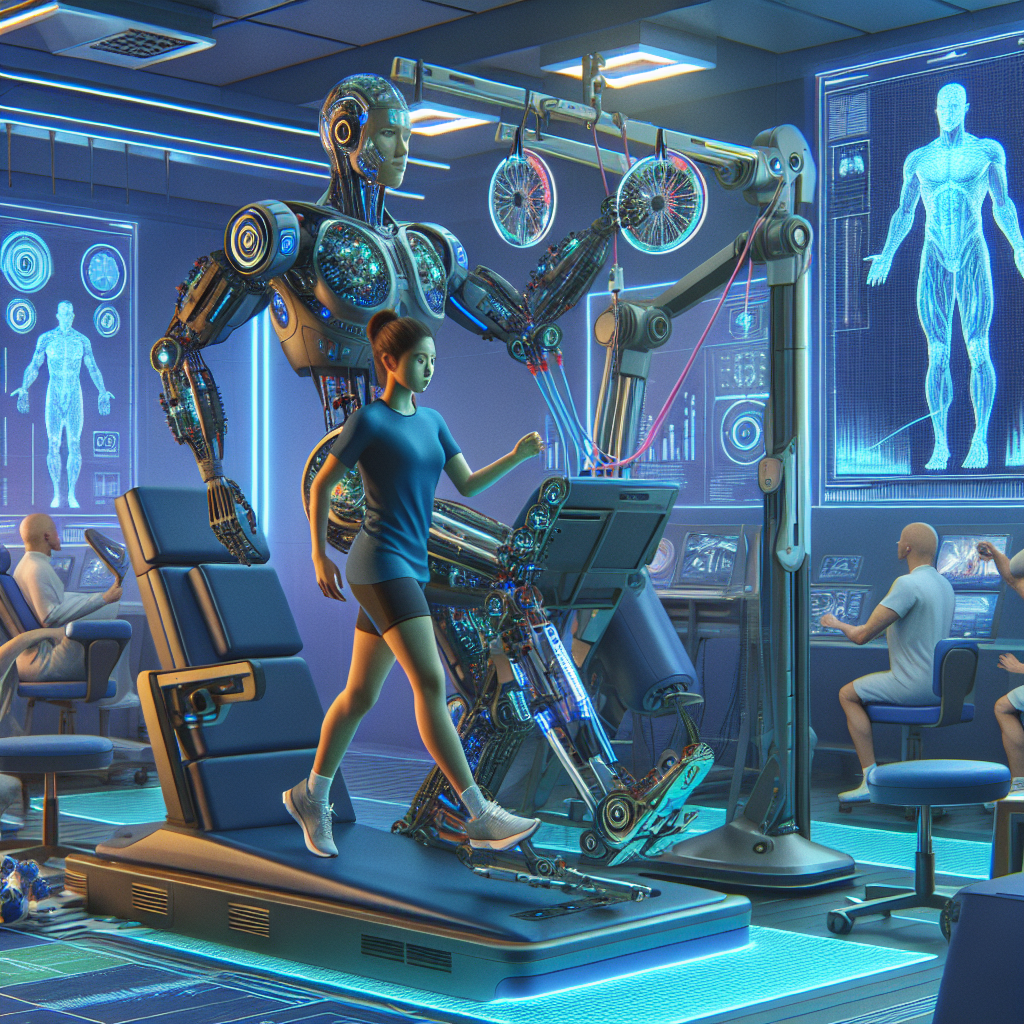Artificial intelligence (AI) has been revolutionizing various industries, and sports medicine is no exception. AI technologies are being increasingly used in sports medicine to improve athlete performance, prevent injuries, and enhance recovery. In this article, we will explore the various ways in which AI is being used in sports medicine and its potential impact on the field.
AI in Injury Prevention
One of the key areas where AI is making a significant impact in sports medicine is in injury prevention. By analyzing large amounts of data, AI algorithms can identify patterns and trends that can help predict and prevent injuries. For example, AI can analyze an athlete’s movement patterns and biomechanics to identify potential areas of weakness or imbalance that could lead to injury. This information can then be used to design personalized training programs to address these issues and reduce the risk of injury.
In addition, AI can also help in the early detection of injuries by analyzing factors such as changes in an athlete’s gait or movement patterns. By detecting these changes early on, athletes can receive timely treatment and rehabilitation, which can help prevent more serious injuries from occurring.
AI in Performance Enhancement
AI is also being used to enhance athlete performance by analyzing data from training sessions and competitions. By tracking factors such as heart rate, muscle fatigue, and energy expenditure, AI algorithms can provide insights into an athlete’s performance and help optimize training programs to improve performance.
For example, AI can analyze data from wearable devices to monitor an athlete’s training load and recovery, and provide recommendations on when to push harder or when to rest. This can help athletes train more effectively and efficiently, leading to improved performance on the field.
AI can also be used to analyze game footage and provide insights into an athlete’s performance during competitions. By identifying patterns and trends in an athlete’s playing style, AI algorithms can provide feedback on areas for improvement and help athletes make adjustments to their game.
Rehabilitation and Recovery
AI technologies are also being used in rehabilitation and recovery to help athletes recover from injuries faster and more effectively. By analyzing factors such as range of motion, muscle strength, and pain levels, AI algorithms can provide personalized rehabilitation programs tailored to an athlete’s specific needs.
For example, AI-powered rehabilitation programs can adjust the intensity and duration of exercises based on an athlete’s progress, ensuring that they are making steady improvements without risking further injury. This personalized approach to rehabilitation can help athletes recover more quickly and get back to their sport sooner.
FAQs
1. How accurate is AI in predicting injuries?
AI algorithms can be highly accurate in predicting injuries, especially when they are trained on large amounts of data. By analyzing factors such as movement patterns, biomechanics, and training load, AI algorithms can identify potential areas of weakness or imbalance that could lead to injury. While no prediction system is perfect, AI can provide valuable insights that can help athletes reduce their risk of injury.
2. Can AI really improve athlete performance?
Yes, AI can help improve athlete performance by analyzing data from training sessions and competitions. By tracking factors such as heart rate, muscle fatigue, and energy expenditure, AI algorithms can provide insights into an athlete’s performance and help optimize training programs to improve performance. By providing personalized feedback and recommendations, AI can help athletes train more effectively and efficiently, leading to improved performance on the field.
3. How can AI help in rehabilitation and recovery?
AI technologies can help in rehabilitation and recovery by analyzing factors such as range of motion, muscle strength, and pain levels. By providing personalized rehabilitation programs tailored to an athlete’s specific needs, AI algorithms can help athletes recover from injuries faster and more effectively. By adjusting the intensity and duration of exercises based on an athlete’s progress, AI-powered rehabilitation programs can ensure that athletes are making steady improvements without risking further injury.
4. What are some examples of AI technologies used in sports medicine?
There are several examples of AI technologies used in sports medicine, including wearable devices that track an athlete’s performance and provide real-time feedback, AI-powered analysis of game footage to provide insights into an athlete’s playing style, and AI algorithms that predict and prevent injuries by analyzing factors such as movement patterns and biomechanics.
5. What are the potential limitations of AI in sports medicine?
While AI technologies have the potential to revolutionize sports medicine, there are some limitations to consider. For example, AI algorithms are only as good as the data they are trained on, so it is important to ensure that the data used is accurate and representative. In addition, AI technologies should be used as a tool to complement the expertise of healthcare professionals, rather than replace them entirely. Finally, ethical considerations such as data privacy and consent should be taken into account when using AI in sports medicine.
In conclusion, the use of AI in sports medicine has the potential to revolutionize the field by improving injury prevention, enhancing athlete performance, and optimizing rehabilitation and recovery. By leveraging AI technologies to analyze data and provide personalized insights, athletes can train more effectively, recover faster from injuries, and ultimately perform at their best. As AI continues to advance, we can expect to see even more innovative applications in sports medicine that will benefit athletes and healthcare professionals alike.

